Which CMS is right for you?
Table of Contents
As the number of websites continues to grow, it becomes increasingly challenging to determine which page builder and website development platform is superior.
In this article, we will compare WordPress and Sitecore, two widely used CMS platforms targeting different segments.
Often, when clients come to me, they ask whether Sitecore is better or WordPress, and if they choose WordPress, what benefits they receive that Sitecore does not offer. Sitecore includes advanced content management capabilities that cater specifically to complex enterprise needs, though it may require more resources and expertise to implement.
These are the initial questions I ask to explore more:
- What is the scope of the project? Is it for your company’s marketing website or another project?
- What is the scale and complexity of your project?
- What’s your budget?
To be honest, budget is often the biggest factor when deciding between Sitecore and WordPress for many businesses.
Sitecore can be extremely expensive for most. Many businesses have reported costs ranging from $50,000 to $150,000 for a standard marketing website.
It can be a bit confusing for many, which is why I’ve written this article to help you decide which platform is better for you—WordPress or Sitecore—and how to make that decision.
Sitecore vs WordPress: A Category-Wise Comparison
| Category | Sitecore | WordPress |
|---|---|---|
| UX & Design | Offers advanced personalisation capabilities and custom functionality | Provides extensive customisation options with a wide range of themes |
| Marketing & SEO | Integrated digital marketing tools and automation for personalised content | Supports third-party plugins like Yoast SEO for SEO optimisation |
| Content Creation & Editing Tools | Multiple editors for backend developers and designers | User-friendly WYSIWYG editor suitable for all users |
| Technical Overview | Requires .NET framework expertise, ideal for enterprise-level platform | Flexible and scalable, suitable for a wide range of business needs |
| Pricing | $50,000 to $150,000, tailored for large enterprises | Cost-effective with various pricing options for different needs |
| Security, Scalability & Protection from Attacks | Enterprise-grade security features, scalable architecture | Strong security features with regular updates and community support |
| E-commerce Capabilities | Specialised solutions for headless e-commerce | Supports e-commerce brands with plugins like WooCommerce |
| Customer Support | Limited to certified developers and partners for technical expertise | Active community support and extensive documentation |
Features of CMS with Advanced Content Management Capabilities
A good Content Management System (CMS) solution serves the fundamental purpose of maintaining your content efficiently while safeguarding your website from potential breakdowns. It should simplify the process of managing layouts and other elements, making it easy for anyone to make changes without needing a developer’s assistance. Whether it’s adding new pages or designing elements on the website, a CMS should empower users to perform these tasks independently. For large organisations, an enterprise CMS is essential, offering scalability, security, and integration capabilities to meet complex needs.
Here are some essential features of a good CMS:
- Ease of Use: The CMS should be user-friendly, allowing even non-technical users to navigate and make changes effortlessly.
- Customisation Options: It should offer robust customisation options, enabling users to tailor the website to their specific needs.
- Accessibility: The CMS should be accessible to everyone, ensuring that content can be managed from any location.
- Cost-Effectiveness: It should be affordable, allowing businesses of all sizes to utilize its features without financial strain.
- Scalability: As your business grows, the CMS should be able to scale and accommodate increased content and traffic.
- Security: A good CMS must provide strong security features to protect your website from potential threats.
These features are crucial for a CMS to effectively support your website’s content management and overall digital strategy. Consider these attributes when selecting a CMS to ensure it aligns with your business goals and operational needs.
Comparing Sitecore vs WordPress
Scope of CMS
Sitecore and WordPress are two of the most popular CMS platforms, each serving distinct purposes and user needs.
Sitecore
Sitecore is a proprietary CMS platform designed for large enterprises seeking advanced content management capabilities and personalised digital marketing tools. It is renowned for its enterprise-grade security, scalability, and ability to deliver highly personalised customer experiences. Businesses often choose Sitecore for its robust marketing automation tools, seamless integration with other enterprise systems, and comprehensive digital experience platform. However, its complexity and high cost make it more suitable for organisations with the necessary resources and technical expertise.
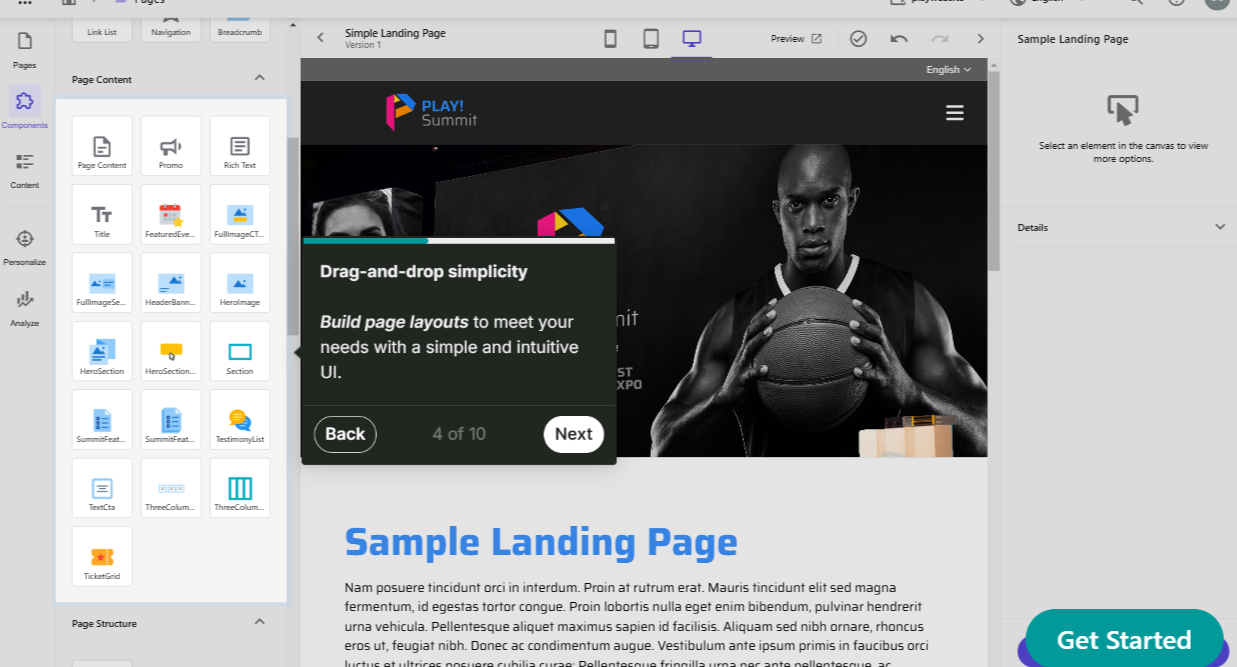
WordPress
On the other hand, WordPress is an open-source CMS platform that powers a significant portion of the web, from simple blogs to complex websites. Its user-friendly interface, extensive customisation options, and active community support make it an ideal choice for both beginners and experienced users. WordPress excels in flexibility, offering a wide array of plugins and themes to enhance functionality and design. It is favoured for its affordability, ease of use, and ability to cater to a diverse range of website needs, from personal blogs to e-commerce sites.
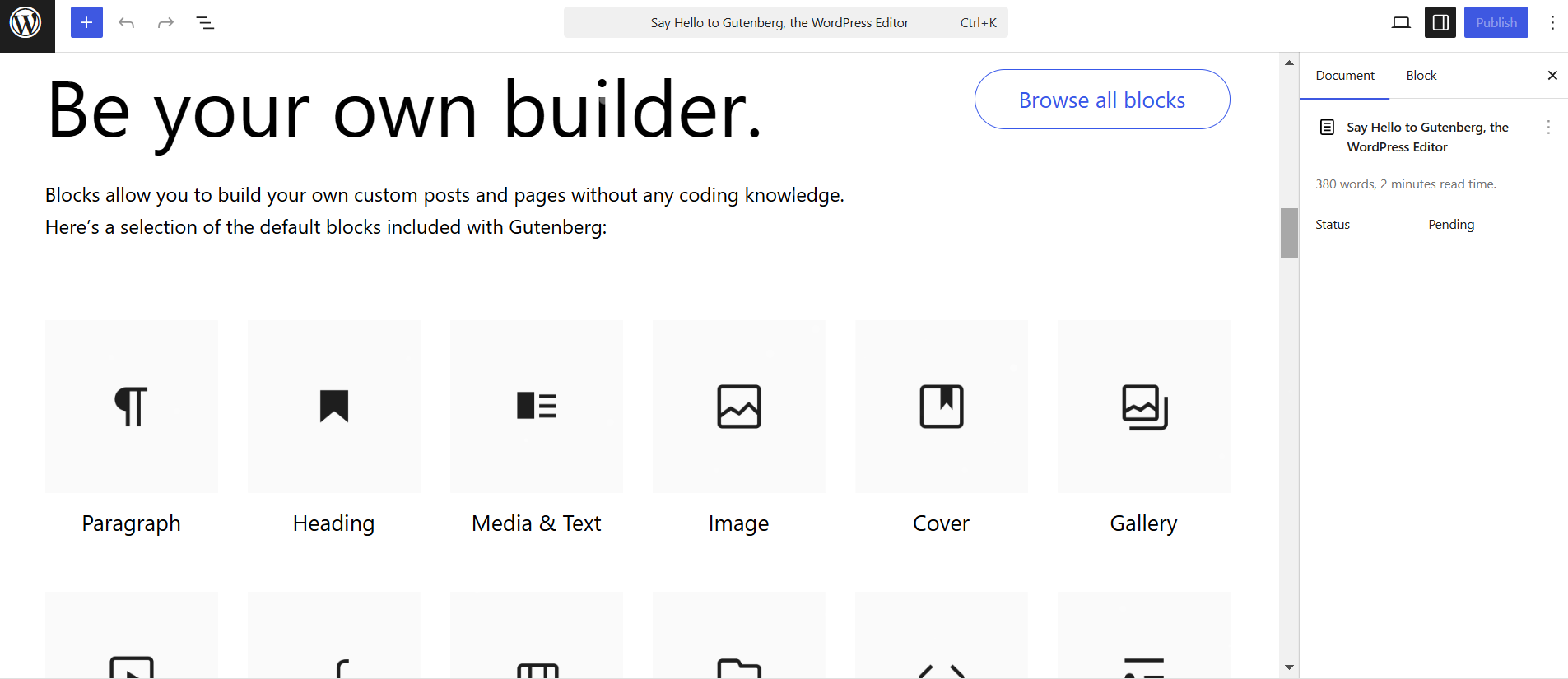
People use Sitecore when they require a comprehensive digital marketing solution with advanced personalisation capabilities and robust security for enterprise-level websites. Conversely, WordPress is preferred for its simplicity, cost-effectiveness, and adaptability, making it suitable for a variety of projects regardless of budget or technical skill level.
UX & Design
WordPress
When it comes to UX and design, WordPress sites stand out as incredibly user-friendly platforms. Their simplicity ensures that even beginners can easily navigate and understand their functionalities. With a wealth of tutorials available and their status as widely used platforms, WordPress sites provide an intuitive user experience that is accessible to everyone.
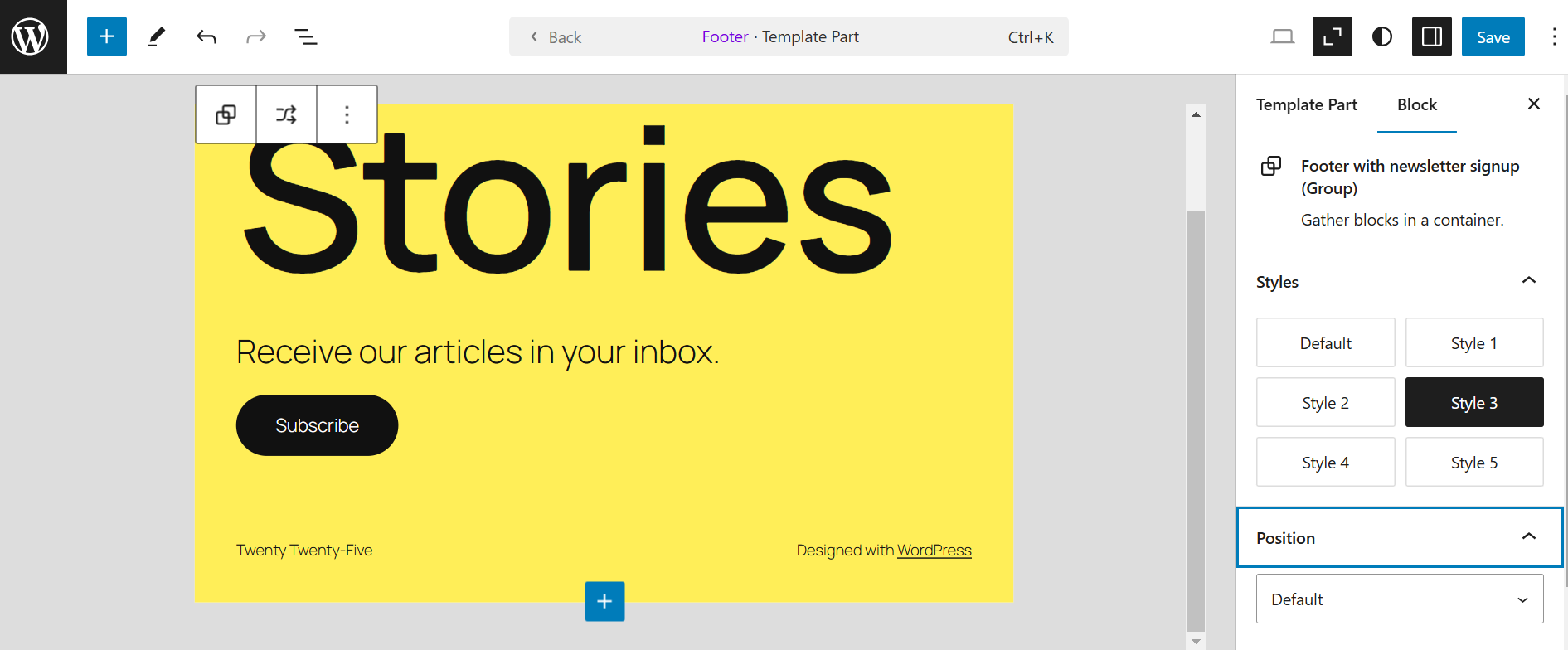
Sitecore
Conversely, Sitecore’s design is more complex, presenting a steeper learning curve for new users. This complexity can slow down the onboarding process, making it challenging for users to quickly become proficient.
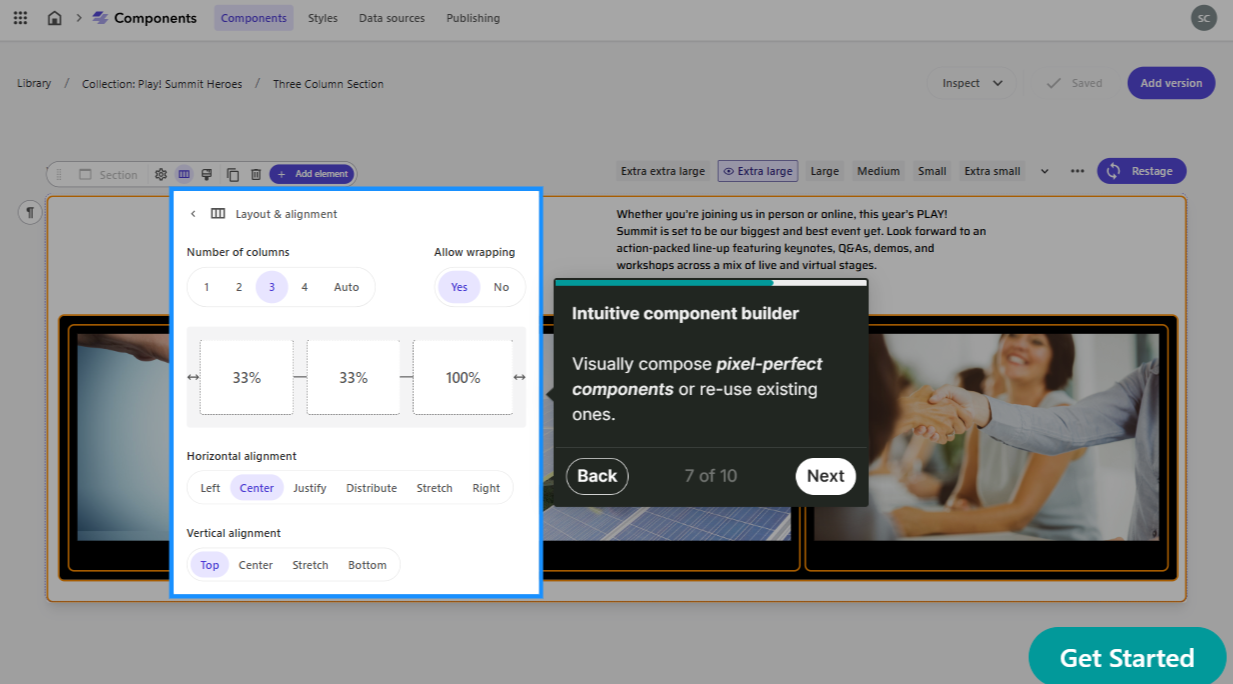
Additionally, Sitecore’s documentation is primarily available through its own channels, with fewer videos and user reviews, which can further hinder the learning process.
Therefore, in terms of UX and design, WordPress is the clear winner due to its widespread use, ease of understanding, and extensive resources available to users.
WordPress
In terms of Marketing & SEO, WordPress stands out due to its ease of creating new pages and the availability of plugins that aid in enhancing on-page SEO. The platform has evolved with the integration of AI-driven plugins, allowing users to customise their marketing strategies effectively. Additionally, WordPress integrates email marketing solutions, such as automated campaigns and customer segmentation, to enhance digital marketing efforts and improve user engagement.
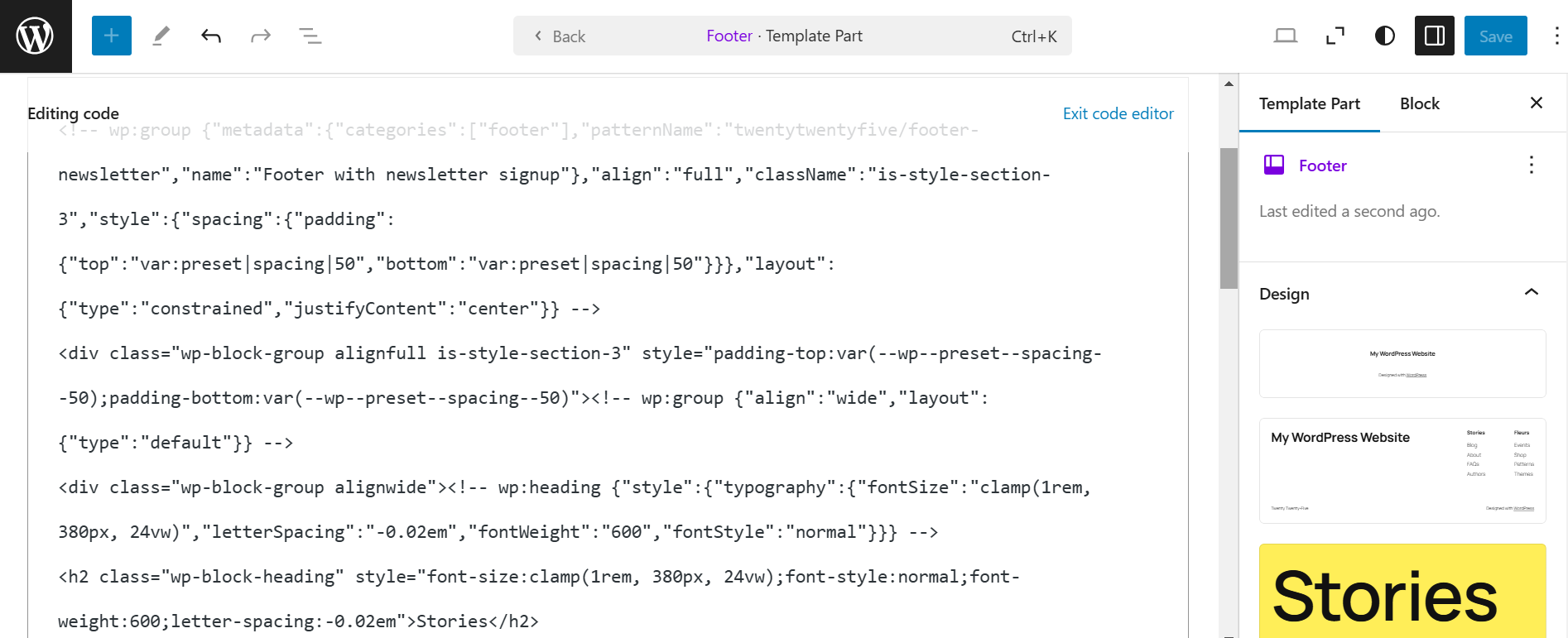
WordPress websites benefit from a wide array of third-party SEO plugins, like Yoast SEO, which are instrumental in optimising content for search engines. On the other hand, Sitecore does not offer the same flexibility in page building, relying on a single page builder that requires duplication for creating new pages.
Sitecore
While Sitecore’s design may have been considered complex, it actually offers a wealth of advanced design and layout options that cater specifically to enterprise-grade needs. Its capabilities allow for the creation of highly personalised and visually appealing digital experiences. Sitecore provides a robust set of tools for designing intricate layouts and incorporating sophisticated personalisation features, making it a top choice for businesses seeking to deliver unique and engaging user experiences. Therefore, when it comes to design and layout options, Sitecore stands out as a powerful platform for enterprises aiming to create customised, high-quality digital environments.
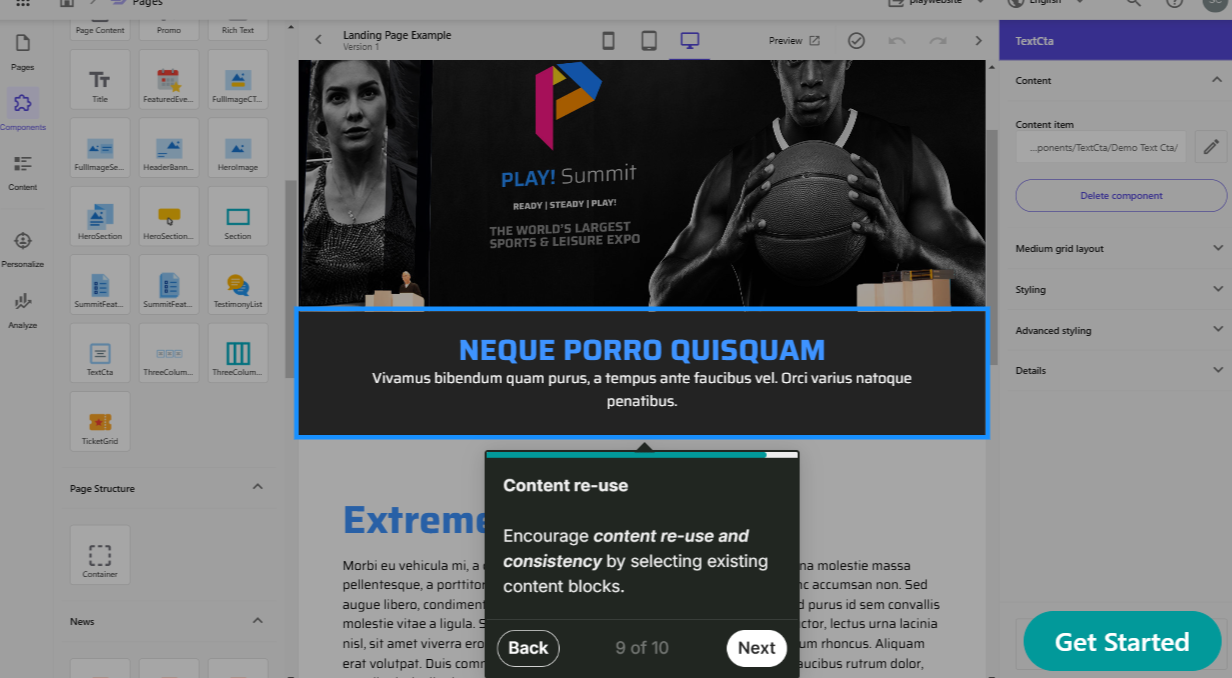
This would be a draw. For SEO and marketing, Sitecore vs WordPress – both have something to offer to their respective users.
Content Creation & Editing Tools
Sitecore
If you’ve ever used Dreamweaver in your childhood, you’ll find that Sitecore and Dreamweaver have a lot in common. The current design of Sitecore mirrors the Dreamweaver experience from back in the day. However, Sitecore offers a built-in page builder by default, allowing you to easily create the design you envision within the editor itself without needing separate tools. However managing, running, and fully learning Sitecore can be quite challenging and complex.
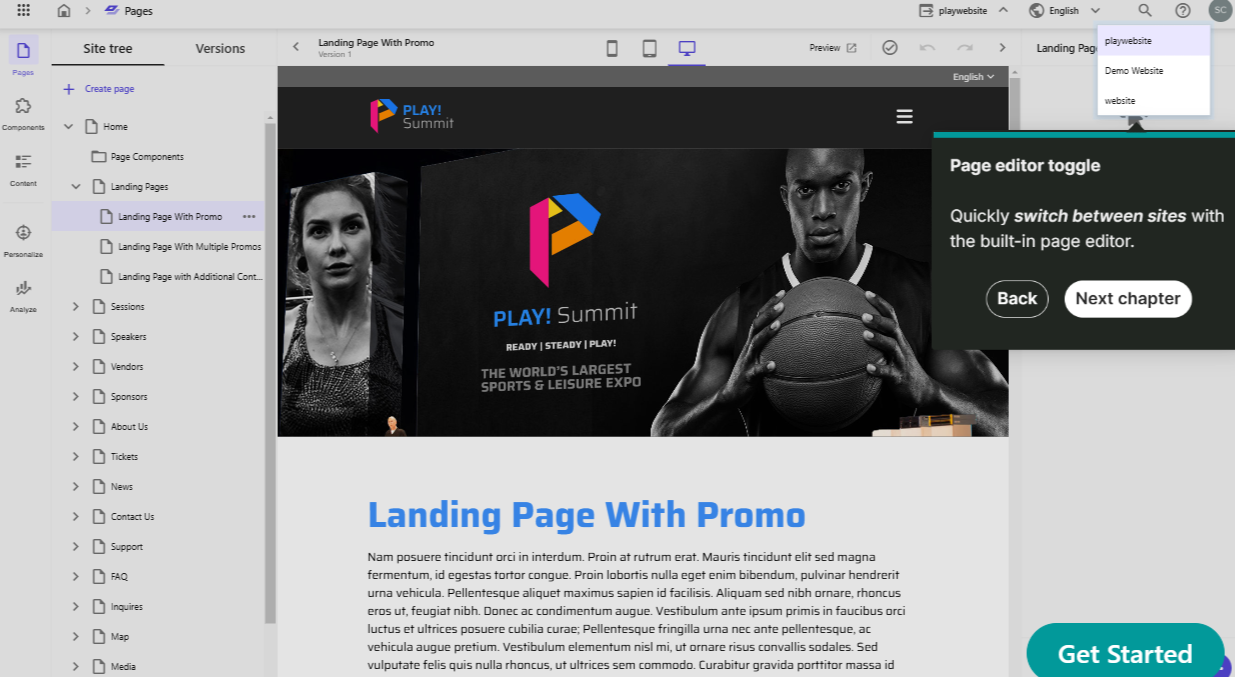
WordPress
In comparison, WordPress offers the Gutenberg editor for content writing and editing, which is readily available. This editor empowers you to create any design you desire for your website. Additionally, WordPress provides disposable themes that you can easily download or customise to suit your preferences. While Sitecore also offers customisation options, the learning curve and complexity are significantly higher compared to WordPress. Due to the custom solutions available on both platforms, I would call it a draw between the two, as it’s difficult to declare a clear winner.
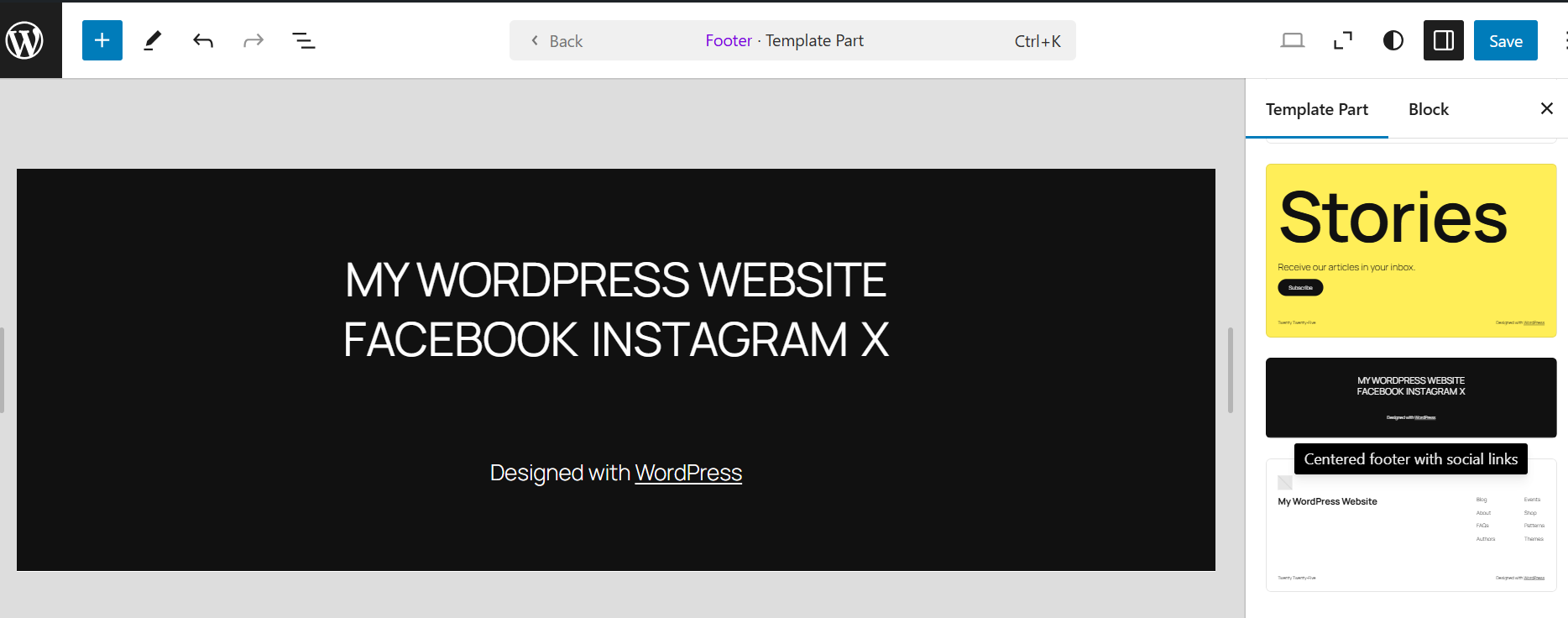
Technical Overview
WordPress
When discussing the technical overview, WordPress offers the advantage of being a flexible CMS platform that allows users to install it on their preferred hosting service. This means you can set up WordPress on managed hosting or any hosting provider of your choice. If you ever decide to move your website, you can easily transfer it to another hosting service without major issues.
Sitecore
On the other hand, Sitecore is a proprietary CMS platform with its own hosting requirements. As an enterprise-grade CMS, it’s not as easily movable as WordPress since it comes with managed hosting options that are integral to its operation. You can’t simply switch hosting providers for a Sitecore website as you can with WordPress. Sitecore’s architecture is tied to its hosting, making it less flexible in terms of hosting changes.
This is why Sitecore Cloud is often recommended for hosting Sitecore websites, providing a more seamless experience. However, if you are using WordPress, you have the freedom to use any hosting service and change it as needed without facing significant challenges. This flexibility makes WordPress a clear winner in terms of technical versatility and ease of management.
Pricing of Sitecore vs WordPress
Sitecore
When it comes to pricing, Sitecore is tailored for enterprise-level applications, offering a comprehensive CMS platform that integrates a range of features including ease of use, customisation, security, performance, scalability, SEO capabilities, and active support.
Sitecore’s capabilities extend beyond just website management, encompassing all aspects of content management, such as documentation and product marketing.
However, this robust functionality comes at a premium, with annual licensing costs for a standard package—capable of handling up to 2 million visitors per year—ranging from $50,000 to $150,000.
WordPress
On the other hand, WordPress offers a more cost-effective solution. With WordPress, you can achieve similar durations at a fraction of Sitecore’s cost, making it significantly more affordable.
WordPress is essentially free, with costs arising primarily from hosting and optional premium plugins or themes, making it a clear winner in terms of pricing.
This affordability, coupled with its extensive customisation options, makes WordPress a popular choice among users worldwide.
Enterprise Grade Security
Sitecore
When it comes to security, Sitecore offers a more robust solution compared to WordPress. Sitecore’s marketing capabilities also contribute to its security features, providing advanced tools like content personalisation, A/B testing, and marketing automation, which are natively integrated into its system. Being a proprietary CMS, Sitecore provides enterprise-grade security features that are less vulnerable to hacking attempts.
WordPress
In contrast, WordPress, being an open-source platform, is more susceptible to security risks due to its community-driven nature, which can lead to delayed updates and potential plugin vulnerabilities. Although WordPress benefits from regular updates and an active community, the open-source aspect makes it a frequent target for hacking attempts.
Sitecore’s commercial software nature ensures fewer security breaches, making it a more secure choice for enterprises. Therefore, in the security category, Sitecore emerges as the clear winner due to its superior protection and stability.
E-commerce Capabilities
WordPress
When discussing e-commerce functionality, WordPress offers a plugin called WooCommerce, which is free and allows users to convert their websites into e-commerce platforms with ease. This plugin is user-friendly and doesn’t require technical expertise, as it is a plug-and-play solution. There are numerous online tutorials available to assist users.
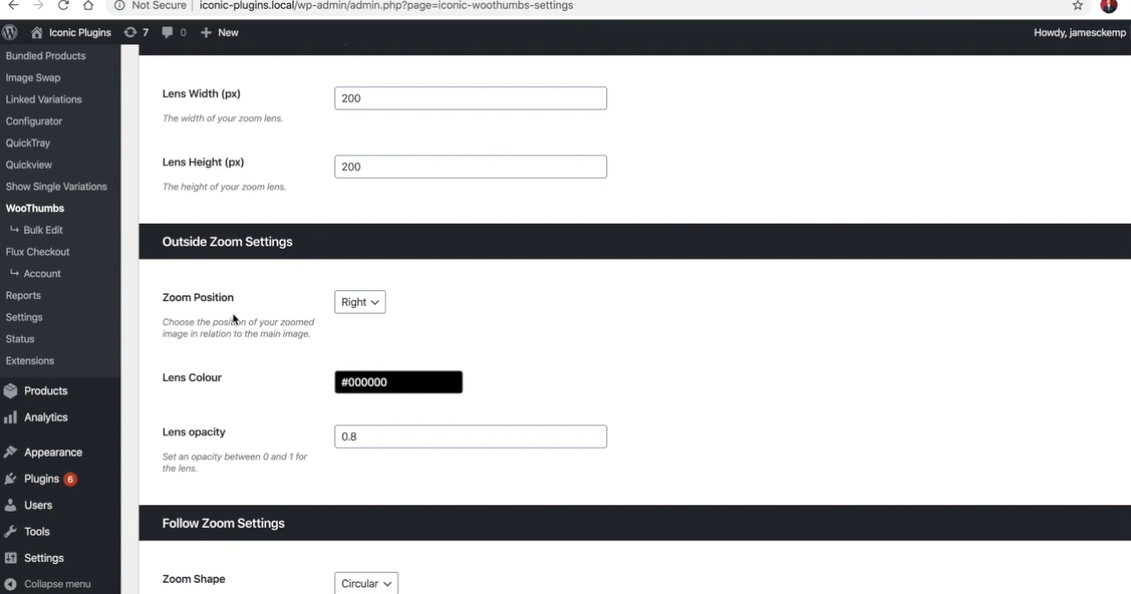
Sitecore
On the other hand, Sitecore’s CMS and e-commerce systems are separate, each with its own pricing structure, which tends to be significantly higher compared to WordPress. Sitecore is a proprietary software, and each module requires a separate account and pricing.
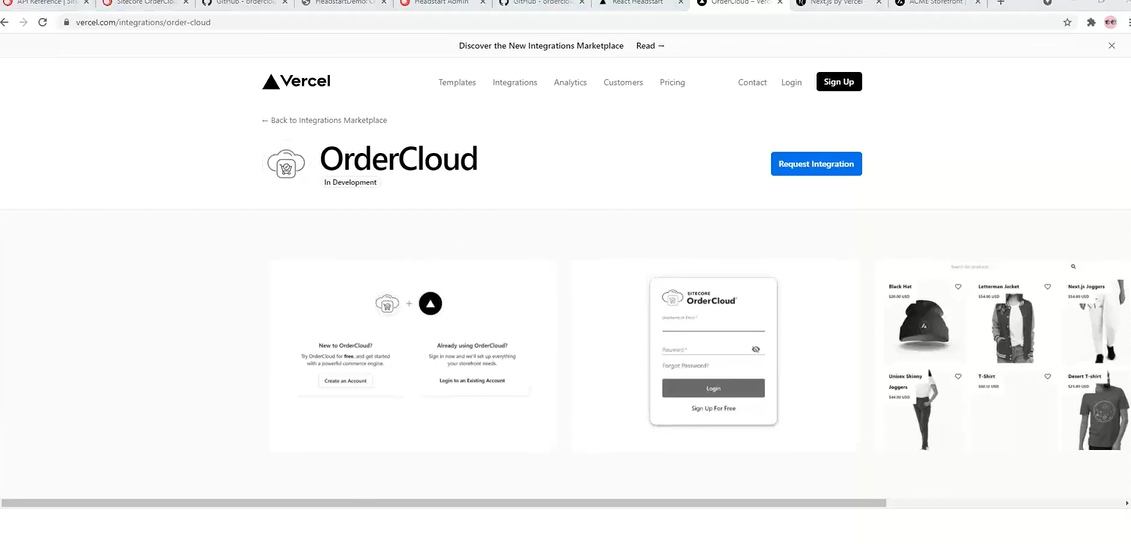
In terms of e-commerce functionalities, WooCommerce in WordPress provides a wide range of features due to its open-source nature and the availability of community plugins. Sitecore, however, offers built-in e-commerce capabilities but lacks secondary integrations and plugins, making integrations complex and limited in options. Therefore, when it comes to e-commerce capabilities, WordPress is the clear winner.
Customer Support
WordPress
When it comes to customer support, WordPress relies on community-based support with forums where the community actively responds to queries.
Digital marketing support is also a key consideration, with WordPress VIP advocating for a flexible, best-of-breed approach catering to varied marketing needs with an extensive plugin ecosystem. There are dedicated communities for plugin developers who engage in forums, answering questions and providing assistance.
Additionally, theme developers have their own communities, and when you purchase a theme from platforms like Envato, you receive support from those communities as well. WordPress, being open-source, means each plugin and module is separate, and the support you receive depends on the vendor from whom you purchased them.
Sitecore
On the other hand, Sitecore is an integrated system where everything is provided by a single company, including customer support. This is advantageous for users who require extensive customer support, as they only have to deal with one company, ensuring consistent and reliable support. Sitecore integrates extensive digital marketing tools within a unified ecosystem, which can be beneficial for comprehensive marketing strategies. With WordPress, support varies because different aspects like themes and plugins are supported by different vendors, which can lead to compatibility issues. These vendors may not always be able to provide the necessary support due to differences in their products.
Sitecore offers more options but is quite technical and complex, yet it provides excellent support. Conversely, WordPress may not offer the same level of support, but it is user-friendly and easy to use. In terms of clear customer support, Sitecore stands out as the winner.
When to Use Sitecore?
Sitecore is an excellent choice for large enterprises that prioritise security, scalability, and personalised digital experiences. Its proprietary CMS platform is designed to meet the complex needs of enterprise-level websites, offering robust security features that ensure data protection. Sitecore is particularly suited for businesses with substantial resources and technical expertise, as it comes with a higher price tag but provides a comprehensive suite of advanced content management and marketing automation tools.
Organisations that require seamless integration with other enterprise systems and wish to deliver highly personalised customer experiences will benefit from Sitecore’s capabilities. Moreover, its dedicated support team offers reliable assistance for any website-related issues or queries, making it a dependable option for large organisations that need constant support and guidance.
In summary, Sitecore is ideal for enterprises seeking a powerful, secure, and fully integrated digital marketing solution, willing to invest in a platform that offers extensive features and dedicated support.
When to use WordPress?
WordPress is an ideal choice for a wide range of businesses, from small startups to medium-sized enterprises, due to its flexibility, affordability, and ease of use. Its user-friendly interface and vast library of plugins and themes make it accessible to users with varying levels of technical expertise. WordPress excels in providing a cost-effective solution for businesses looking to establish an online presence without significant investment in resources or technical infrastructure.
However, while WordPress is suitable for many business needs, it may not be the best fit for large enterprises that require enhanced security and comprehensive scrutiny. Enterprise-level organisations often demand robust security measures and advanced customisation capabilities that go beyond what WordPress can inherently offer. Despite its extensive plugin ecosystem, WordPress’s open-source nature can pose potential security risks, which may not align with the stringent requirements of large-scale enterprises.
In summary, WordPress is perfect for businesses aiming for growth and expansion without incurring high costs, offering a balance of customisation, affordability, and usability. Yet, for enterprises that prioritise top-tier security and dedicated support, alternative CMS platforms like Sitecore may be more appropriate.
Conclusion
In conclusion, choosing between Sitecore and WordPress depends significantly on your specific business needs and goals. Both platforms serve distinct purposes and cater to different user segments, making it essential to consider their unique strengths and limitations.
Sitecore is tailored for large enterprises that demand robust security, scalability, and advanced personalisation capabilities. It excels in providing a fully integrated digital marketing solution with comprehensive support, making it ideal for organisations with the resources and technical expertise to leverage its full potential.
Conversely, WordPress is a versatile and cost-effective option for businesses of all sizes, offering extensive customisation options and a user-friendly interface. Its affordability and flexibility make it a popular choice for those looking to establish an online presence without significant investment.
Ultimately, the decision should be based on the specific requirements of your project, including budget, technical expertise, and desired features. Both platforms have their strengths, and selecting the right one will ensure your business can effectively.


